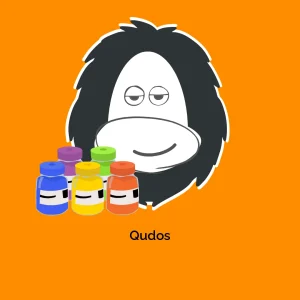The Role of the Author in the Digital Age
In an era when information is abundant and content is produced at an unprecedented scale, the role of the author has evolved significantly. Traditionally viewed as a solitary figure, the author is now often at the center of a more collaborative and interconnected web of creation and consumption. This transformation has opened new pathways for individuals to express their creativity and share their narratives, yet it also raises important questions about identity, authenticity, and the future of storytelling.
The Evolution of Authorship
Historically, authors were often seen as gatekeepers of knowledge and culture. They meticulously crafted their works for publication in books, magazines, or other tangible media. Today, however, the digital landscape allows for diverse forms of authorship. Anyone with internet access can publish their thoughts, experiences, or artistic expressions, democratizing the act of creation. Platforms such as blogs, social media, and self-publishing websites have blurred the lines between traditional authors and everyday individuals sharing their stories.
This shift has given rise to the concept of the “digital author,” who often engages with their audience in real-time. By employing social media, authors can receive immediate feedback, create a community, and even co-create content with their readers. This interactivity enhances the author-reader relationship, fostering deeper connections that were less common in traditional publishing models.
Understanding Different Types of Authors
Fiction Authors
Fiction authors, whether writing novels or short stories, create entire worlds, characters, and narratives from their imagination. Their work often reflects personal experiences, societal issues, or purely fantastical ideas. A good example is the acclaimed author J.K. Rowling, whose Harry Potter series transcended the literary world, becoming a cultural phenomenon and a source of inspiration for countless readers.
Non-fiction Authors
Non-fiction authors, on the other hand, focus on factual content. They might write biographies, self-help books, or essays that provide commentary on real-world events. These authors rely on research and real-life experiences to inform their writing. Malala Yousafzai, for example, used her platform to share her story as an advocate for education, inspiring many with her courage and resilience.
Academic Authors
Academic authors contribute to their fields through research papers, journals, and books aimed at peers and students. Their writing is often dense and aims to advance knowledge within a specific discipline. These authors frequently publish their findings in scholarly journals, ensuring their work undergoes rigorous peer review to maintain academic integrity.
Content Creators
With the rise of the internet, new categories of authorship have emerged, particularly among content creators. These authors often produce multimedia content—videos, podcasts, and graphic novels—that resonate with various audiences. They creatively blend writing with other forms of expression, such as video editing and graphic design, to convey their messages compellingly.
The Author’s Voice: Authenticity and Authority
A critical aspect of an effective author is their voice. This voice, authentic and distinct, serves as the unique signature of the individual behind the work. Readers are often drawn to an author’s voice because it provides a sense of trustworthiness and relatability. This authenticity becomes more important in the digital sphere, where misinformation is rampant, and audiences are increasingly discerning about what they consume.
In contemporary authorship, authority comes not just from credentials or accolades but also from engagement and relativity. The voices of authors like Amanda Gorman resonate with readers not only because of their eloquence but also because they tackle pressing social issues, making their work relevant and meaningful.
Intellectual Property and the Rights of Authors
As authors navigate the digital landscape, considerations regarding intellectual property have come to the forefront. The question of who owns what content in a digital age full of remix culture and collaborative creation is complex. Copyright laws were established to protect authors’ rights, giving them exclusive control over their works. However, with the rise of sharing and remixes, the lines can often become blurred.
Authors must be mindful of their intellectual property rights while acknowledging the communal nature of digital authorship. Many are finding innovative ways to adapt, such as licensing their works under Creative Commons or utilizing platforms that respect authors’ rights in the sharing of their content.
The Impact of Technology on Authorship
Technology has heavily influenced the practice of authorship. From writing software to marketing tools, various resources are now available to support authors in reaching their targeted audience. Additionally, the use of artificial intelligence in writing is becoming increasingly prominent, with AI tools helping authors brainstorm ideas or refine their prose.
While these advancements provide opportunities for efficiency and creativity, they also pose ethical dilemmas. There’s an ongoing debate surrounding the role of AI in authorship—can a machine truly create? What does it mean for human creativity when algorithms can generate text that mimics human authors? These questions will likely shape the future understanding of authorship.
The Author in the Social Media Era
Social media has become an essential tool for modern authors. It offers a platform to promote their work, engage with readers, and build communities. A strong social media presence can elevate an author’s visibility, allowing them to connect with broader audiences beyond traditional publishing channels.
For example, the author Colleen Hoover gained fame through TikTok, where readers shared their love for her romance novels. Her rise in popularity illustrates how social media can serve as a powerful marketing tool in the hands of authors who learn to leverage their digital platforms effectively.
The Importance of Community and Collaboration
Despite the often solo nature of writing, building a community can greatly benefit authors. This is particularly evident within genres or fan communities, where authors interact with each other and their readers to create rich ecosystems around their works. Collaborations can lead to unique projects, essences of different voices merging to produce innovative content.
The graphic novel trend, for instance, often sees authors collaborating with illustrators to tell stories that are visually engaging and contextually rich. By pooling talents and resources, authors can push the boundaries of traditional storytelling.
Challenges Facing Modern Authors
While opportunities abound, modern authors also face numerous challenges. The competition in the digital space is fierce, with countless voices vying for attention. Getting noticed among the noise can be daunting, and authors need to be strategic in their promotional efforts while remaining genuine to their writing.
Additionally, rapidly changing algorithms on social media platforms can impact visibility, making it difficult for authors to maintain consistent audiences. Mental health considerations, including burnout from social media engagement and the pressure to produce successful content, are critical discussions within the author community.
The Future of Authorship
Looking ahead, the author’s role is likely to continue evolving. With technology advancing and societal values shifting, authorship will require adaptability and openness to new mediums and methods of expression. We’re already seeing trends with the rise of immersive storytelling in virtual and augmented reality, blurring the lines between author and audience.
Moreover, as discussions about diversity and representation continue, new voices are emerging, expanding the narratives we consume. It’s an exciting time to be an author, as the very definition of who gets to be one and what it means to be an author is in flux.
The author in the 21st century is not merely a writer but a creator, a community builder, and an innovator. They adapt to new technologies and realities while striving to maintain their unique voice in a crowded digital world. It’s a challenging yet rewarding path, filled with opportunities to influence, inspire, and connect with audiences like never before. Whether through the realms of fiction, non-fiction, or digital media, the author retains a pivotal role in shaping the narratives of our time. Each author, in their way, continues to tell the stories that matter, serve to educate, entertain, and inspire generations to come.
Download Author Themes for free
Here you have it, downloading Author Themes for free is perfectly feasible and legal.
Truly, even downloading a cracked Author is law-abiding, because the license it is distributed under is the General Public License, and this license permits the holder its free modification and resale.
Hence, there’s no reason to worry: If you were in search of to buy Author cheaply or, directly, to download Author Themes nulled and, thus, get it one hundred percent free, on OrangoGPL, you can do it legally.
Author GPL: The only choice for entrepreneurs starting out
What you call it is irrelevant: Discounts for Author Themes, download Author Themes GPL, download Author without license or download Author nulled.
It is totally within the law and something more than necessary for any new entrepreneur.





Reviews
There are no reviews yet.